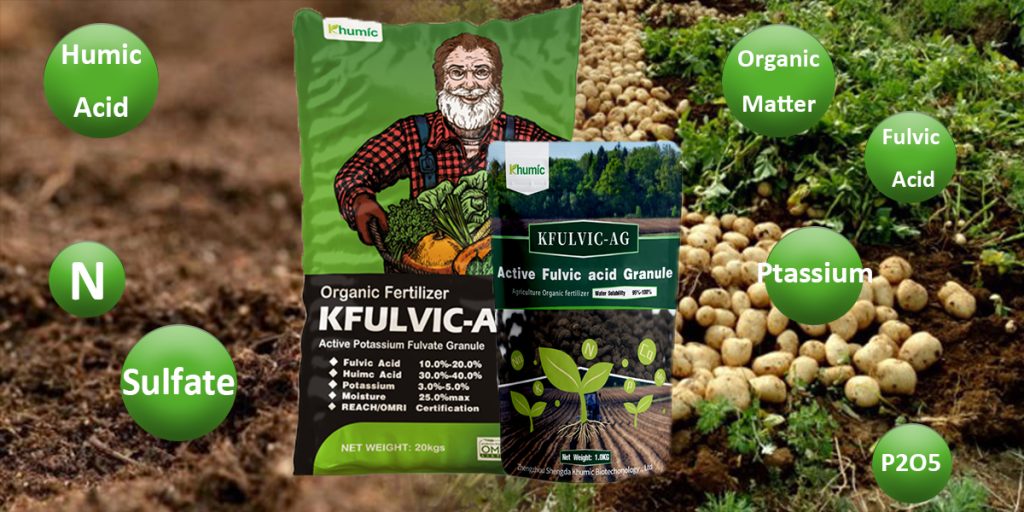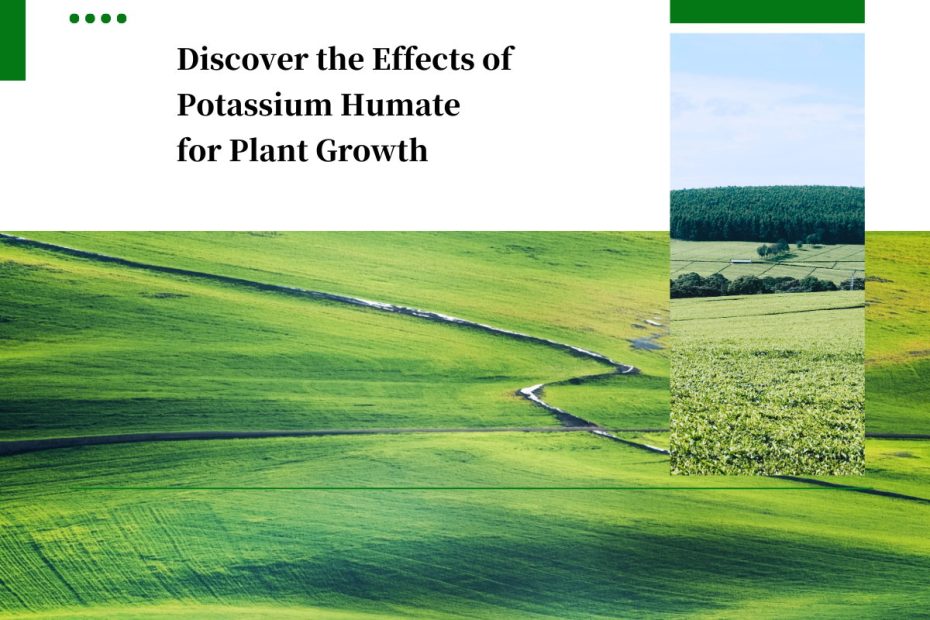Introduction
With the improvement of human living standards, crops are not only required to have higher yields but also to have good quality. The quality of agricultural products is affected by many factors. The most important factor is fertilizer. The benefits of potassium humate for plants are significant, especially in terms of increased yields and economic benefits. And as a pollution-free organic fertilizer, it can change the way we cultivate green plants.
The Role of Potassium in Plant Growth
Potassium is an essential nutrient for plants and plays a key role in various physiological processes. It is involved in enzyme activation, osmoregulation, and nutrient transport within plants. Promotes plant rhizome development, immune system, and drought resistance. By ensuring adequate potassium levels, plants can maintain normal growth, flowering, and fruit development.
What is Potassium Humate?
Potassium humate is a natural compound derived from organic materials such as weathered lignite, coal or peat. It is rich in humic acid and fulvic acid, which are key components of humus and essential nutrients for plant growth and development. This dark, shiny substance is a great source of nutrients and biostimulants that can significantly improve soil quality and plant health.
Compared with ordinary potassium fertilizer, humate potassium fertilizer can increase fertilizer efficiency and utilization rate by 87%-95%, increase crop yield, and improve quality. It has good water retention, fertilizer retention, nutrient release regulation, and control functions. It is a very good controlled-release fertilizer.
In addition, potassium humate can also be used as a treatment agent for oil drilling fluids, mainly to prevent wall collapse.

Benefits of Using Potassium Humate for Plants
Potassium humate is potassium humate salt, a high-efficiency organic potassium fertilizer, black granular or powdery solid. It is a selected extract of weathered coal. Soluble in water. It is alkaline and contains active groups such as carboxyl and phenolic hydroxyl groups.
1. Enhance nutrient absorption
Potassium humate can increase the content of available potassium in the soil, reduce the loss and fixation of potassium, increase the absorption and utilization of potassium by crops, improve the soil, and promote crop growth. Promote the decomposition and action of artificial (such as pesticides) or natural toxic substances;
2. Improve soil structure
Improve soil aggregate structure and water retention capacity, promote soil aggregation and reduce compaction; increase soil cation exchange capacity and fertilizer retention capacity, improve fertilizer slowness, and increase soil fertility; provide beneficial soil microbial activities. Creates a favorable environment for root growth and nutrient absorption.
3. Enhanced stress resistance
Plants treated with potassium humate have increased resistance to environmental stressors such as drought, heat, and disease, improving overall health and vitality. Enhance post-disaster resilience of crops and improve crop quality.
4. Promote growth and yield
Compared with inorganic fertilizers, the application of potassium humate organic fertilizers can increase yield, crude protein content, and starch content. The biostimulant properties of potassium humate stimulate plant growth and improve crop respiration and photosynthesis. Thereby increasing the yield of fruits, flowers, and vegetables. When broken down, it releases nutrients needed by the plant, increases root production, improves crop quality, and adds sweetness to the melon.
For example: after applying potassium humate, wheat yield can be increased by 6.8% to 12%; corn can promote early maturity and the average yield can be increased by 7-9%; potato starch content can be increased by more than 10% and vitamins can be increased by 65.8%; the sugar content of cantaloupe It can be increased by 8-15%; the sugar content and vitamin C content of watermelon can be increased by 13-31.3% and 13-42.6% respectively.
5. Balance pH
Potassium humate helps balance soil pH, creating a more hospitable environment for beneficial soil organisms and plant roots.

Symptoms of Potassium Humate Deficiency in Plants
When plants lack enough potassium, they may exhibit various symptoms of nutrient deficiency. These include stunted growth, yellowing of leaves (chlorosis), reduced flowering or fruit set, and increased susceptibility to pests and diseases. Recognizing these signs is critical to promptly addressing nutritional deficiencies.
Conclusion
Potassium Humate is a natural, sustainable plant-growing solution that promotes plant development, improves soil quality, and enhances overall plant health. By harnessing the power of potassium humate, plants can be unleashed to their full potential while promoting soil health and environmental sustainability.
FAQs
What is the difference between humic acid and potassium humate?
Humic acid can be used as a soil conditioner in agriculture to increase soil fertility. Potassium humate containing fulvic acid can transport nutrients in the soil to plants and promote absorption. Excellent as a foliar fertilizer in irrigation systems.
Is the excessive application of potassium humate on plants harmful?
the answer is negative. Too much potassium humate won’t harm your plants, but it will certainly waste it. Increased risk of runoff.
What is the pH value of potassium humate?
Khumic potassium humate has a pH value between 8 and 11 and is 100% soluble in water. Suitable for page sprinkler and irrigation systems.
What are the raw materials of potassium humate?
Potassium humate manufactured by KHUMIC Co. is derived from highly reactive weathered lignite. After the technological extraction of this raw material, a humus extract of higher quality and agronomic profit is obtained.
